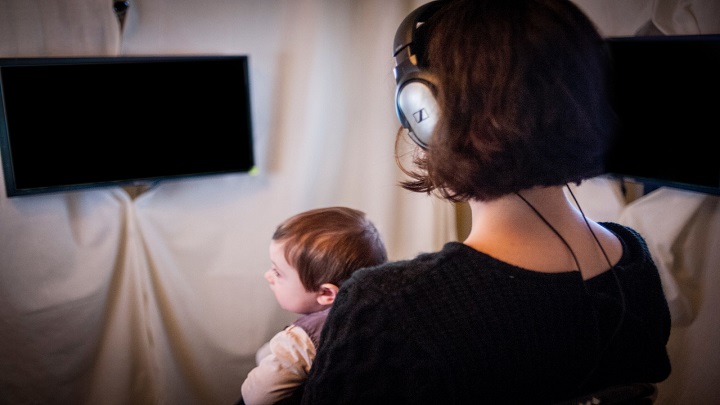Detail
Speech rhythm and pitch are fundamental in babies’ language acquisition
Language acquisition is a complex process that requires different neural and cognitive skills since early childhood. One of children’s big challenges in language learning is to distinguish the words that are grammatically linked to each other, even though they hear one word after the other. We can easily understand that in the sentence “She, who never drinks coffee, sleeps more”, “she” is the subject to the verb “sleep”, just like in the —easier— sentence “She sleeps well”, although the first sentence has many words in between the subject and the verb. However, how does a child’s brain cope with having to find regularities between the words that are separated from one another in a sentence? Since there are many words that could go together, it seems impossible to keep track of them all.
To date, it was thought that babies could not recognize these distant regularities in speech signal until their first year of life. Now, a study published in the journal Science Advances reveals that 9-month-old babies are sensitive to non-adjacent grammatical regularities contained in language components. The conclusions of the study highlight the importance of prosody —rhythm, melodic stress, pitch, pauses, etc.— that eases the babies’ language learning process.
The study is led by Ruth de Diego Balaguer and Ferran Pons, lecturers at the Faculty of Psychology and the Institute of Neurosciences of the UB (UBneuro). Researchers Anna Martínez Álvarez and Judit Gervain, from the University of Padova (Italy), participate in the study too.



